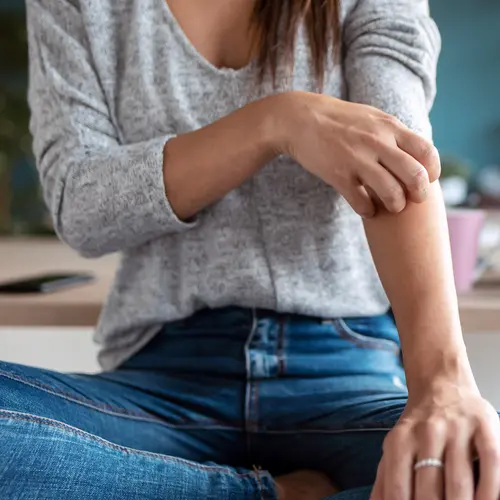Others may think psoriasis is just dry skin, but you know it’s much more than that -- and it’s helpful if they do, too. When your loved ones understand how psoriasis affects your everyday life, they’re better able to give you the support you need.
You may have to be the one to get the conversation started. But there are a few things to keep in mind when you do.
Remember: They can’t read your mind.
It’s not always obvious to others how psoriasis affects you. If you get plaques in places that you cover with clothes, they may not know you’re having a flare. They may not know you take medication. They may not realize that having psoriasis can affect your emotional health.
When you open up about your disease, though, you have a chance to help them understand.
First, explain the basics.
People may assume that a psoriasis plaque is eczema. Others may wonder if it’s contagious. Maybe they think it’s a reaction to something you ate. Take the opportunity to dispel the myths and teach them the facts.
You can start by explaining that psoriasis is a disease that causes plaques in different parts of your body. They can’t catch it by touching you.
After they learn the basics, you can give them a deeper understanding. Explain that the immune system causes psoriasis and that although it comes and goes, it’s something you’ll have for the rest of your life.
Let them know it’s a condition that needs care and attention, so you have to take extra care of your skin and go to the doctor regularly.
Make it clear that some things are hard.
Don’t sugarcoat. Help your family and friends understand how psoriasis affects your everyday life. Explain your limits. Give specific examples.
Maybe you don’t want to go to the beach because you’ll expose your skin to the sun. Maybe a long walk feels like too much. Maybe some chores are hard to tackle because of how they affect your skin. Be open, honest, and clear.
Get them involved.
Keep your family and friends in the loop. Update them on your treatments. Make a list of your medications and give it to someone close to you in case of an emergency.
Ask a close friend or family member to join you at a doctor’s visit. Not only is the support helpful, but they may learn something they didn’t know.
Accept help.
Your loved ones will want to support you, but they may not know how. Offer specific ways they can help.
Maybe they pick up your prescriptions at the pharmacy or cook a meal when you’re not feeling up to it. When you’re feeling run down, they can find a low-key way to spend time together. Maybe they can be a shoulder to lean on when psoriasis gets you down.
Try to show them the best ways to support you as you manage your condition.

